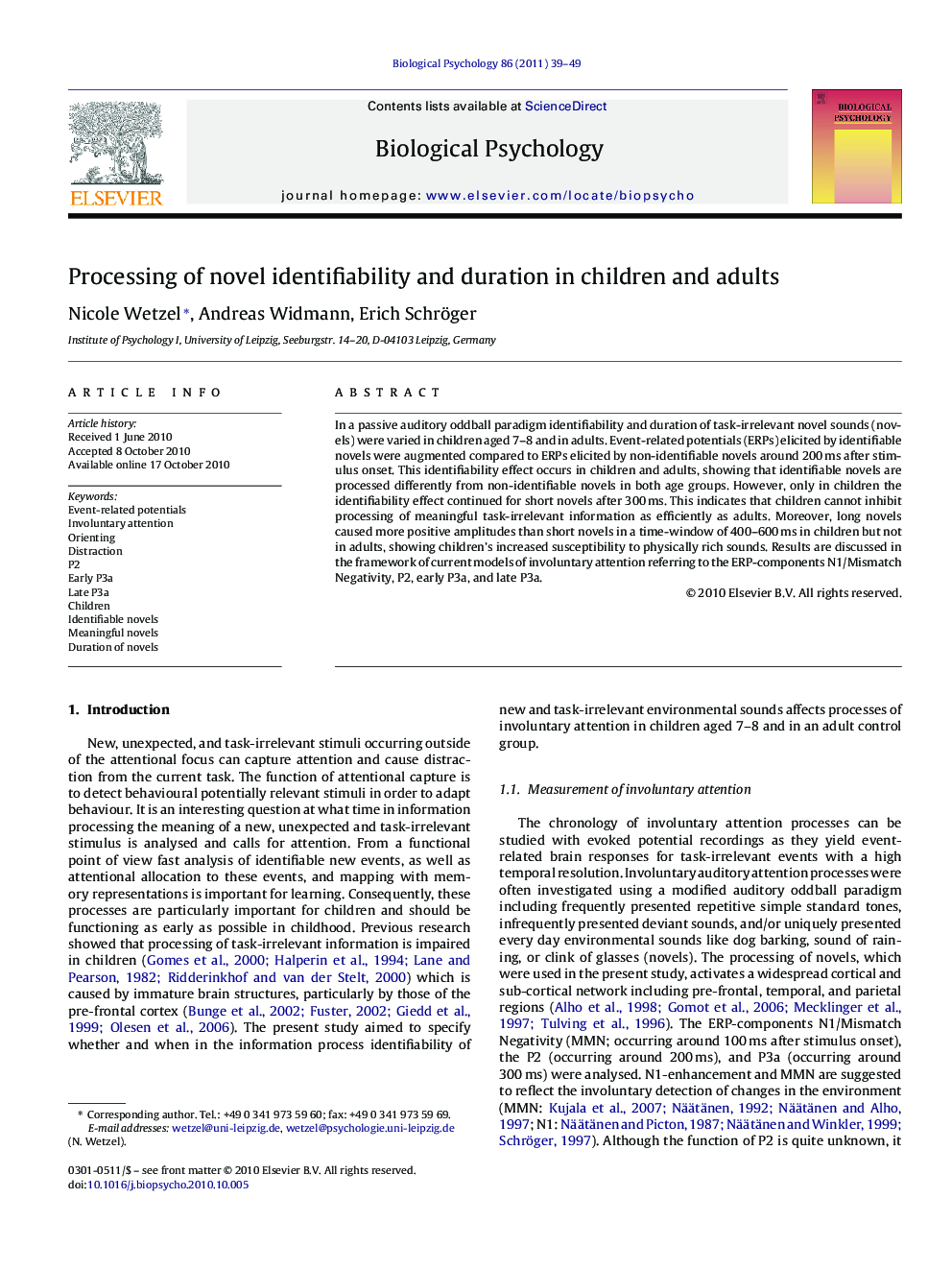| Article ID | Journal | Published Year | Pages | File Type |
|---|---|---|---|---|
| 921244 | Biological Psychology | 2011 | 11 Pages |
In a passive auditory oddball paradigm identifiability and duration of task-irrelevant novel sounds (novels) were varied in children aged 7–8 and in adults. Event-related potentials (ERPs) elicited by identifiable novels were augmented compared to ERPs elicited by non-identifiable novels around 200 ms after stimulus onset. This identifiability effect occurs in children and adults, showing that identifiable novels are processed differently from non-identifiable novels in both age groups. However, only in children the identifiability effect continued for short novels after 300 ms. This indicates that children cannot inhibit processing of meaningful task-irrelevant information as efficiently as adults. Moreover, long novels caused more positive amplitudes than short novels in a time-window of 400–600 ms in children but not in adults, showing children's increased susceptibility to physically rich sounds. Results are discussed in the framework of current models of involuntary attention referring to the ERP-components N1/Mismatch Negativity, P2, early P3a, and late P3a.
Research highlights▶ Identifiability of task-irrelevant novels affect processing around 200 ms. ▶ Identifiable novels cause stronger attention capture in children but not in adults. ▶ Increased processing of long novels in the time-window of late P3a. ▶ Children are more susceptible to physically rich sounds than adults. ▶ Scalp distribution of N1, MMN, P2, early P3a is different between children and adults.
